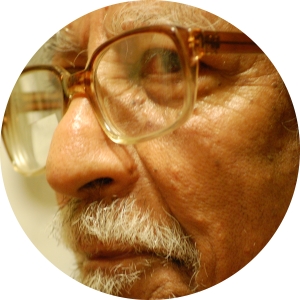Book 2 Chapter 6: Penang
(Penang, Malaysia, 1800s)
Rob Rob was helpless. Godmother and Father had left him with no choice. If he knew how to make a living, he would have contemplated a break with the family, but Eton had not taught him that. Once he reached Liverpool and saw the majestic Heart of Oak, one of the earliest clippers built, a lot of the resentment arising from this enforced voyage was replaced by excitement which he could not keep the lid on. As someone who had dreamt of a career in the Royal Navy, he knew that the novelty of sailing in that magnificent ship would help assuage the pangs of separation from his beloved Highland lassie, although he saw this as akin to betrayal. Would a career in the navy make it impossible for him to marry Kitty? Yet he knew that Navy officers had wives, so presumably it was not a big problem. But he stopped himself The trip hasn’t yet started, I might become disenchanted with the sea after ten long weeks.
Unsurprisingly he enjoyed every minute of the voyage, the simple routine, the rituals involved in the hoisting of the sails, the bells, the flying fish, the dolphins, specially as Captain Morrison had befriended him and invited him to have a go at the helm. He was immediately enamoured of the sound of waves lashing against the ship, sea water spraying his face as he leant against the railing, licking his lips to enjoy the taste of salt, and the pitch and toss of the valiant little ship. He did not suffer from sea-sickness and was very proud of himself, and found it funny when an officer said that at one time, the captain himself was not immune to this. He learnt everything he could about sailing, how to deal with gaff sail, staysail, square sail, how to rig sails, read the sextant, locate the position of the ship — everything one would expect a young man of his age to be interested in. By the time he arrived in Singapore, he felt quite certain that he would be able to take charge of clipper like this one.
 Photo Credit:
CC-BY-NC-ND Behan
Photo Credit:
CC-BY-NC-ND Behan
It was a short journey by a launch manoeuvred by six hefty betel-spitting Cokhan oarsmen, from Singapore to Georgetown, and his father was delighted to see him. They had not seen each other for three years, the last time Sir Robert had returned to England. Rob Rob hardly remembered Penang, as he had left it at the age of three. He had no memory of his mother, although he sometimes thought he remembered a face hovering over his, an ayah, he was told, as she put him to bed. That woman was the nearest thing he had had to a mother, although he knew that she had died shortly after his birth. It was all very confusing.
The house was an extravagant wooden mansion standing on stone pillars, painted all white apart from the windows which were blue. There was a large open verandah which one got to by climbing Carrera marble steps. The large sitting room next to the verandah could easily accommodate sixty people, and he imagined that it was not uncommon for the British community to gather here for banquets and feasts. The furniture, the wall hangings, the paintings of dignitaries, vases and carpets were displayed with an ostentation which seemed to be aiming to match what he saw at Dunrobin’s, but not quite succeeding. The cutlery, the china and table cloths were all monogrammed. He wondered whether Father knew all the servants, there were so many of them.
Sir Robert Helmsdale-Robertson had immediately set to work, embarking upon experiments, with his helpers, on some new seedlings from Kew which had arrived on the same ship as Rob Rob, in order to verify what earlier experiments had indicated: that there was every reason to believe that rubber would thrive here. The Industrial Revolution was predicted to change the face of industrial Britain and rubber was going to play an important part in this. The Company prided itself on being in the forefront of all modern ventures, with no new avenues left unexplored. It was the Company’s policy to look at a large number of projects, carry out experiments and surveys on the most promising ones, and then invest whatever it took in those most likely to bear fruit. If ten ventures proved sterile, leaving the eleventh one viable, then it was considered a success, for the profits made when a single venture was successful were always mouth-watering. That, the leaders of the Company said, was what the British Empire was all about.
However, busy as he was, the old man still had time for his son. It was clear that his boy was very dear to him. He had been alarmed by what Bessie had written, but thought that she might have been over-protective of the boy whom he knew she thought of as almost son. He had also always suspected that she might have been more in love with him than he had dared imagine all those years ago. He told Rob Rob that he was not one who paid too much attention to the values prevalent in the Mother Country with all its snobbery and pomposity, and the boy was heartened to hear that, although the all too visible pomp and luxury around, belied this, he thought. He imagined that Father would not necessarily object to his romance and blurted it all out to him, about his great love for the crofter’s daughter. The old man smiled at first, but after a moment his countenance changed. You are very young, Robert, and I have plans for you which do not include your getting married for another six to eight years. Rob Rob was stunned. He knew he wanted to be true to Kitty, but had not the faintest idea how to go about getting married. He was angry with his father, thought that he had wilfully misled him, emitting so-called liberal views in order to trick him into showing his hand, but the harsh reality was that he was wholly dependent on him.
It did not take long for Ah-Ling, one of the servants who had been beaming at him in the most friendly manner ever since he had arrived, to slowly creep upon him one afternoon, when he was sitting in the veranda, admiring the hibiscuses and jacarandas and engage him in conversation. As he had just written a letter to Kitty, he put it in a large envelope together with all the letters he had written to her which he had not yet posted, and entrusted them to the smiling man to post, telling him to say nothing about this to Helmsdale-Robertson. Later, Ah-Ling approached him again.
‘The young tuan needs tea?’ he asked gently. The boy shook his head without raising it.
‘You must go meet your grandmother,’ Ah-Ling whispered softly. Rob Rob looked at him vacantly, unsure as to whether he had heard right.
‘Grandmother?’ He had been told that there were no relatives from his mother’s side. He had heard conflicting stories about his mother. She was the daughter of a Chinese dignitary or even minor royalty, but in either case, it had been emphasised to him that she had been an orphan. Apart from the enduring image of that woman leaning over him whom he had so long taken to be his mother, he had never given much thought to her. The story told to him, was that he had been in the care of an ayah, and then at the age of three was taken to Scotland to be raised by an aunt and his grandmother.
‘Your grandmother, she live in Seberang Penai… Butterworth… across the straights… she want see young tuan.’
Rob Rob was still unable to grasp the importance of Ah-Ling’s words.
‘My nephew Pai will take you there… tomorrow… he come tonight… do not tell Sir Obert… Big Tuan.’
Finally the purport of Ah-Ling’s words dawned upon him. He nodded absently, unsure if he should take advantage of what sounded more like an order than an offer. Why had they all lied to him?
He lay on his bed that night sweating, still unsure about what he was going to do, but deep down he knew that he had no choice. Nobody who has not known his mother would refuse to seize the chance of learning more about her. He slept badly, dreaming confused and repetitious dreams of that Oriental woman bending over him. He woke up early, got up and went outside to take advantage of the fleeting freshness of the morning, and to avoid meeting Sir Robert. He was in the massive garden and gave a sigh of relief when he saw him leave in his horse-drawn calèche. While he was eating a frugal breakfast, Ah-Ling came in smiling broadly.
‘He here, tuan,’ he whispered in a complicit manner, and a frail young man, hardly older than himself put in an appearance.
‘Pai…’ said Ah-Ling, ‘he good boy, he take tuan Ob Ob Serebang Penai… Company launch… you write note for tuan Obertson, but no mention Ah-Ling.’
Rob Rob nodded, and he wrote a curt three-lined note explaining that he was taking the launch across the straits to spend a day or two at Butterworth which he had wanted to visit. He then left with Pai.
At the port, the young Penangite spoke to the boatman in Malay and they climbed aboard. It was quite hot and humid already, but Eton, with its daily cold showers, had taught him one thing: that he could put up with physical hardship. They crossed the straits, heading slightly north-east and landed at Serebang Penai in under an hour. A rickshaw took them to Butterworth where they stopped. Pai got him some Mamak roti and dal from a street vendor, which, to his surprise, he found quite appetising. A second man was hired, as the journey by rickshaw to Bukit Mertajam where the grandmother lived was too long for one man. Rob Rob shrugged. Obviously Father would not approve of his being away, but he was past caring. He had clearly lied to his son, betrayed him even, and so he owed him nothing.
The road out of Butterworth was uneven and rocky, and he could feel his bones rattle as he was regularly thrown up and down but soon they were riding across one of the most pleasant landscapes that Rob Rob had ever seen. It was as unlike the Highlands as it was possible to be but just as stunning. The lushness was of a darker green and there were trees and shrubs everywhere, flowers of all shapes, sizes and colours, and the combination of humidity and heat was both exhilarating and stifling. The hills of Mertajam loomed large, and unlike those in his native land, you hardly saw any rocky surfaces as it was all dense vegetation. He marvelled at the endurance of the rickshaw-men who took lengthy shifts pulling, and never complaining. Pai was happy to help, specially as the terrain was becoming steeper as they approached the hills. There were scattered little hamlets, and he watched small ragged Malay women tilling their vegetable patches. It was mid-afternoon when Pai smiled and explained that they were about to “leach Glandmother virage.” They soon did, and he followed Pai into a little shack which reminded him of the one where Kitty lived, in Strathnaver. He shouted something in Malay and an old toothless woman appeared.
 Photo Credit:
CC0 marveltreebradpig
Photo Credit:
CC0 marveltreebradpig
‘Tuan glandmother…’ Pai said happily. The old woman beamed at the boy and clearly expected him to fall into her arms or something, but Rob Rob looked at her stiffly.
‘Ob Ob,’ said Pai needlessly
‘Dingbao,’ she said almost inaudibly. Rob Rob was puzzled. ‘Tuan Ob Ob,’ she whispered nodding to herself, ‘you big.’ Rob Rob finally smiled and took a couple of steps in her direction. He first extended a hand, expecting her to shake it, but she took both his hands in hers, squeezing them fondly, and suddenly, to his alarm, began covering them with kisses. He was more puzzled than touched by this effusion. He was asked to sit down on a rickety stool, and the old lady stared at him smiling and nodding, muttering something in Malay under her breath. Then she said something to Pai and the young man went out, and came back followed shortly after by a younger frail and sad-looking woman who looked about fifty, but was in fact not yet forty. Rob Rob had the strange conviction that she was the ayah who had looked after him as a child? She stared at him, saying nothing, but he could see clearly that her eyes had welled up with as yet unshed tears. She stood there, like a statue, her hands slightly raised and her lips trembling. The young man could not take his eyes off her, and was likewise rendered motionless. Pai and the woman who was supposed to be his grandmother stared at each other, her mouth slightly open, in expectation of something monumental. The woman suddenly took one step in the direction of the visitor, and to his surprise, he did not back off this time, but did exactly the opposite, taking a step in her direction. She muttered some words which could have been in some sort of English, but Rob Rob could not make any sense of them. She raised her hands slightly to touch him, and he let her. It was when their hands touched that he knew for sure.
‘Obert…’ she whispered softly.
‘Mother,’ said Rob Rob equally softly. She drew him to her bosom and buried her head in his broad chest, stroking his hair gently. The old Grandmother spoke excitedly to Pai, and he ran out of the house.
‘My son Obert,’ the woman said, ‘Praise God… I never think I see you in this life…’
‘So you are alive,’ said Rob Rob rather stupidly. She smiled, as she had obviously not understood.
‘Mother, they told me you —’ He stopped short, realising how cruel it would be to tell her the truth.
‘Why you call me mother?’ she asked suddenly.
Rob Rob looked at her questioningly, completely confused. He seemed to have gained a mother only to lose her immediately after.
‘Call me Maa…’ she said, managing to stop herself bursting into tears.
‘Ma,’ said the son, squeezing her more tightly. At this point the old grandmother took over, and made a non-stop speech in Malay which left the boy completely dumbfounded. It was clear that her mother’s grasp of English, though not perfect would come in handy. She took over.
‘Your grandma speak no English, just yes tuan, thank you memsahib…’
‘And you?’
‘I work as maid in English house… I learn… now I forget, but practise when I have opportunity, for when I meet son… you… for fifteen years, everyday I dream this, the day when I meet you.’ She shook her head, not entirely believing that she was actually in the presence of her long lost son, muttering, ‘Obert, Obert’
At this point Pai entered with kaya and tea on a plate, and served the visitor. When Maa was unable to explain what she meant, Pai translated.
When Helmsdale-Robertson took over the Company, Moy-Lin had just arrived in Georgetown looking for work, as her father had died suddenly leaving the family destitute. She was young when Robert saw her. She asked him for a job, saying that she could cook, clean, iron, sew, whatever was needed, and he immediately called the Steward and told him to give her a job.
She was happy in the job, she had never been afraid of hard work. She was surprised at how quickly she picked up English. The master loved to talk to her, she made him laugh by the way she spoke, not in a bad way. Then, blushing and turning her face away, she related how suddenly one day he invited her to his bed. Rob Rob felt his anger towards his father rising. Tell Obert it pains me to speak to my son about such a delicate matter, but he is an intelligent boy and should know the truth, she urged Pai. Tell him I no want lose my job, that whole family depend on me. So I agree. Besides, she explained with a coy smile, she had been smitten by this tall handsome man. Fact is, even after all the things that he had done to her, she still… loved him. Not that any man would look twice at her now.
The master was very tender to her at first, saying how he would have married her if it was at all possible, but he did not want to lose a job he liked doing, and was therefore not prepared to take risks. When she found out that she was pregnant, the master arranged for her to go Bagan Ayer Itam, where his friend the English Resident, Mr Morejohn-Quimple would arrange for her to be taken to an old Chinese abortionist, but she would not hear of it, and talked Ah-Ling, who was taking her across west into helping her. With the help of some strangers, she ended up back home in Bukit Mertajam. She did not know what she was doing, all she knew was that she would not allow anybody to kill her baby. If life became impossible, she would go deep into the forest there, climb the hill and when she reached lake Mengkuang, she would throw herself in it and drown with her baby inside her. Fortunately for her, the villagers looked after her. Grandmother sold the few possessions she had, begged and borrowed and Rob Rob was born. They called him Dingbao, which meant the one who escaped death in the local dialect.
At first Mr Robertson did not react, but when the boy was six weeks old, he arrived in the village one day. He had seemed very touched to hold his son in his arms, and readily forgave Ah-Ling for having been instrumental in saving the boy’s life. He said that he wanted to take his son back with him to Georgetown, but Grandmother said that was out of question. He had wanted the boy dead, she challenged. She would look after her grandson herself. He left after giving them a rather large sum of money. He sent Ah-Ling from Georgetown regularly, with money and things for the baby but he never came to see him. They thought that was the end of the story, and were reconciled to this, thinking that the Englishman was being very fair and had accepted his responsibility.
Two years later, however, out of the blue some soldiers arrived, accompanied by Ah-Ling and an English nurse, and explained that they had come to take Dingbao with them to Georgetown. Grandmother ordered him out of her house, but a soldier produced a letter which no one in the village could read, saying that it was signed by the Governor. Ah-Ling explained that the white man had too much power and that it was useless to resist. If the villagers caused any trouble, they would all pay for it. Besides, Mr Robertson had decided that he would pay a handsome pension to Moy-Lin.
She had thought that giving her money was an insult, but it was Grandmother who pointed out that the money would come in handy, as Moy-Lin’s irresponsible behaviour in the city had brought all this calamity upon them. They were warned against coming to Georgetown to see the boy.
They learnt later that Dingbao had left for England, and thought that none of them would see him again in this life. But here he was, large as life, sitting in their modest house. Rob Rob had to make great efforts during the narration of his childhood history to keep his eyes dry. Had Father really wanted him killed at birth? Was he a heartless brute, a failed murderer? How shabbily he had treated his mother. He now gave free vent to his pent up emotions, and hugging his mother, he said, rather incoherently, ‘I am so sorry, Maa, I am so sorry, will you ever forgive me?’ Pai had to translate, whereupon Moy-Lin cackled merrily.
‘Me, no forgive you? No have to, I wrong you, you no wrong me…’ she said.
Rob Rob stayed in Bukit Mertajam for a whole week, not wishing to confront his father over his cowardly betrayal of his mother. He was surprised by how relaxed and serene he was in these strange surroundings. Blood must be thicker than water.
When he reached the paternal home, his father was livid with rage, but the moment he saw the ravaged face of his son, his anger immediately metamorphosed into concern. He showed great sympathy for his boy, but the latter would have none of it. He was not used to shouting at the older generation, and thus resisted his urge to fling his contempt for what he had done, in his father’s face, but it was clear to Sir Robert that his son was now privy to his guilty secret. He had hoped that, the money he scrupulously sent to Bukit Mertajam regularly, would have ensure that the shabby way he knew he had treated the mother of his boy would stay a secret. As for the servants and employees of the Company who would doubtless have shared gossip with each other, he had the certainty that they were loyal to him to a man, as their livelihood depended on his goodwill. He was surprised that they had talked. Still he would have a quiet word with Ah-Ling who had more than once proved his complete loyalty to him after the original betrayal. But who had arranged for the boy to visit his mother? But come to think about it, it was not a bad thing for the boy to have found out the truth. He could only hope that he would not hold it against him for planning to get rid of him before he was born. He had always felt guilty about depriving the boy of his mother’s love. He had often laid on his bed, sweltering in the humid months, unable to find sleep wracked by guilt. First he had not had the guts to marry the woman he had indeed always loved, and then when he had been given a second chance of finding love, at the birth of his son, he had again allowed ambition and with prejudice to turn the happiness that might have been his into an Indian rope trick which he had witnessed in Bombay once, allowing it to disappear into thin air. In what way was all this wealth he was accumulating almost by the hour, the ostentation he surrounded himself with, contributing to his happiness? Bessie’s crofters surely led a more meaningful existence.
When the boy had calmed down, he would have a heart to heart talk with him, and he felt sure that he would talk him into letting bygones be bygones. Now, he had an Eton education, he had grown up among distinguished people and he had a bright future waiting. He would make sure his mother would be able to live comfortably for the rest of her life. What would have become of the lad if he had grown up in this godforsaken place surrounded by, if not quite savages, but people who to all intents and purposes, behaved like children, had no sense of responsibility or punctuality, who always smiled and agreed with everything you said and then failed to deliver the goods? No, it would be impolitic to tell him that at this stage.
 Photo Credit:
CC0 moritzklassen
Photo Credit:
CC0 moritzklassen
When a week had gone by and there was no sign of a thaw on his son’s part, his anger began to rise again. Rob Rob was planning to go back home by now, after paying another visit to his mother. He tackled his son one night, as he was proceeding to go to bed.
‘Come to the verandah, we can have a drink together, I think you are grown-up enough now, eh what?’ He had tried to be conciliatory. The boy had said nothing and had followed him in silence. They had seated themselves facing the Channel separating Pulau Penang and the mainland. It was a starlit night, and if circumstances were different, this could have been a memorable and pleasant evening.
A servant brought a bottle of whisky on a tray with two crystal glasses, and he drank a toast to his boy’s future. Rob Rob left his glass untouched.
‘So you’ve made up your mind, you really want to go back?’ The young man made an indistinct grunt.
‘When you have made up your mind about what you want to do, just let me know.’ Rob Rob nodded with singular lack of enthusiasm, mumbling something in which only the word Eton stood out.
‘I believe that I have talked you out of this nonsensical romantic attachment that your Godmother informed me about.’ Fact was that he had never discussed this with his son. Somehow he must have thought that the boy would have absorbed by a kind of mystical osmosis, the ideas that he had mulled over in his mind, supposed to make him see reason.
‘On the contrary, I am now more than ever determined that I must do what is right by Kitty.’ A resounding slap in his face, was followed by another, ‘My conscience dictates this, as I have given her my word, I am no coward.’ Helmsdale-Robertson almost felt the pressure on the I, pushing it forward to the right in order to make it into an Italic.
The old man swallowed what was left in his glass in one go, made an impatient gesture to the servant who hurriedly filled his glass again. He tipped half the contents of that glass in his mouth in one go. Then he took a deep breath, and looked at the boy in the eyes, and emptied his glass.
‘Rob Rob, you do as you think fit, but should you do anything without my permission, I will no longer…’ he left that hanging in the air, and added ‘and you will get not one penny from me. And that’s my last word.’
Father and son scarcely exchanged more than Good Mornings or Good Nights after that. A week later, Helmsdale-Robertson told his son that he had arranged for him to travel to Southampton on a Royal Navy frigate, and that he should leave for Singapore on the morrow on a company launch. Rob Rob had planned to visit Bukit Mertajam before going back, and said that he could not just leave without saying goodbye to his Ma. You’re just being over-dramatic, the older man said, you don’t have time, you need to be in Singapore tomorrow, you can always write to her.
‘In that case,’ the son said, ‘I am not catching the frigate. I cannot just leave without seeing my mother, don’t expect me to, sir.’
‘You are putting me in a difficult situation, they will think I am an idiot… it was not easy to arrange a berth for you…’
‘I must see my Ma,’ adding, ‘sir,’ as he had notice how he had flinched the first time he had used the word.
‘If you do that, I will wash my hands off you forever.’ He immediately wished that he had not said that.
Rob Rob wished it had not come to that, but he had no choice. He turned his back and went to arrange a visit to Bukit Mertajam.
He stayed with his mother’s family for a few days, but realising that he was quite an encumbrance, he decided to go back to Penang and look for a job, so he could save enough money for his passage back to England. Unbeknownst to him, his father had arranged with Merritt & Co, a rival company to give his son a job. As luck would have it, he found lodgings with the Merritts who also had a large house, although not quite as magnificent as the Helmsdale-Robertson mansion. Mr Merritt allowed him to leave early every other Friday so he could travel to Burkit Mertajam, to visit Moy-Lin, returning to Penang on Tuesday.
I would die before I take another penny from my father, he swore. Scrupulously he gave half his salary to Ma, but saved every remaining penny, with a view to going back to Kitty as soon as he was able to. In the meantime, he wrote to her regularly, but she never received a single one of his letters. She wrote to him at Eton, but the letters were sent to Dunrobin. The duchess had also arranged with Golspie to have all letters to Kitty intercepted as well.
Rob Rob soon developed a friendship with Cicely Merritt, who had just come back after two years in London where she was sent to acquire some sort of accomplishments, and confided in her his great passion for the one he had left behind. He was greatly touched by her sympathy and support. She offered to help him with some of her own money when the time came for him to leave. They spent a lot of time together, and when one day he suggested to her that his Highland lassie might have forgotten him, since she had never replied to his many letters, she urged him to be steadfast and stay faithful to her. It was this which showed him beyond the shadow of a doubt, what a great heart she had. What developed between them shortly after, much to Merritt’s (and Sir Robert’s hidden) delight, was inevitable. Rob Rob would always keep a spot in his heart for his youthful love, but when he married Cicely, no man was a better husband. He would have a distinguished career in Penang where he would end up the Chairman of the Chamber of Commerce, and like his father before him, he would be knighted at the tender age of thirty-six for services to the Empire.



